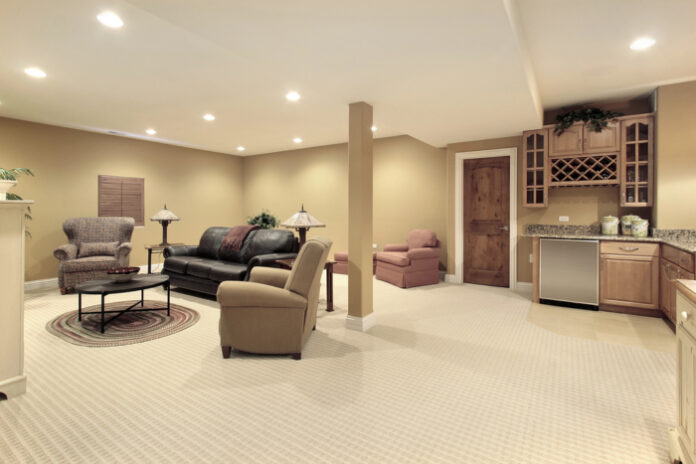In today’s homes, basements are no longer relegated to being dark, musty storage spaces. Many homeowners now transform their basements into functional living areas, adding significant value to their properties. Whether it’s a cozy family room, a home theater, or an extra bedroom, a finished basement is a valuable investment. However, protecting this investment from water damage is crucial. In this article, we will explore the special considerations and techniques required for waterproofing a basement that is finished or used as a living space.
Understanding the Risk
Before delving into waterproofing techniques, it’s essential to understand the potential risks associated with a finished basement. Unlike unfinished basements, finished ones have walls, flooring, and furnishings that can be easily damaged by water. Water intrusion can lead to mold growth, structural damage, and the ruin of your investment. Therefore, waterproofing is not an option but a necessity.
When it comes to waterproofing a finished basement, the primary option is interior waterproofing. This method involves addressing water intrusion from within the basement. It includes installing a drainage system, sump pump, and a moisture barrier on the interior walls. Interior waterproofing is less invasive and can be done without excavating around the foundation. However, it may not be as effective as some exterior methods in preventing water from entering the foundation walls in the first place.
Special Considerations for Finished Basements
When waterproofing a finished basement, certain considerations and techniques become crucial:
- Moisture-Resistant Materials: Select moisture-resistant building materials for your finished basement. Opt for mold-resistant drywall, water-resistant flooring options, and paint that can withstand humidity. These materials are less susceptible to water damage and mold growth.
- Adequate Drainage: Ensure that your basement has an effective drainage system. This involves installing a sump pump and perimeter drains. These systems help collect and divert water away from your living space, reducing the risk of flooding.
- Proper Insulation: Insulate your basement properly to control humidity and prevent condensation. Inadequate insulation can lead to moisture problems and reduced energy efficiency. Consult with a professional to determine the right insulation for your basement’s specific needs.
- Vapor Barriers: Install vapor barriers on interior walls to prevent moisture from seeping through. These barriers can help control humidity levels in your finished basement, making it a more comfortable and healthy living space.
- Regular Maintenance: Finished basements require regular maintenance to ensure that waterproofing systems remain effective. Check your sump pump and drainage systems regularly, and address any issues promptly. Additionally, keep an eye out for signs of water damage or mold and take action if needed.
Professional Guidance
While some aspects of basement waterproofing can be done as DIY projects, it’s often best to seek professional guidance and services, especially when dealing with a finished basement. Waterproofing professionals have the experience and expertise to assess your basement’s unique needs and recommend the most suitable solutions.
The Cost of Waterproofing
The cost of waterproofing a finished basement can vary widely depending on the size of the space, the severity of water issues, and the chosen waterproofing method. However, it’s essential to view this as an investment in protecting the value of your home and ensuring the safety and comfort of your living space.
Find a Home-Based Business to Start-Up >>> Hundreds of Business Listings.
















































